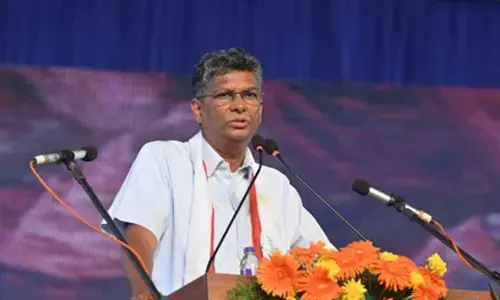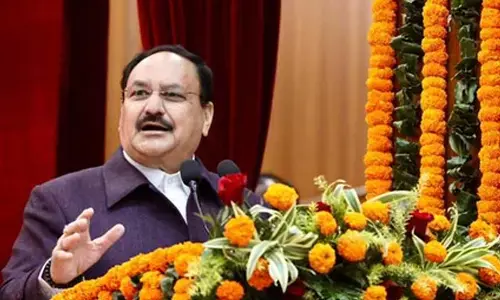Answer writing strategy for IAS Mains exam

After IAS Prelims 2016 results was declared, aspirants are left with a presumption on whether UPSC will continue emphasizing on current affairs or it may change the streak and ask questions about static questions based on current events, whatever may be the inclination, only one skill survive and can save the stinking boat i.e., efficient and consolidated writing skills.
After IAS Prelims 2016 results was declared, aspirants are left with a presumption on whether UPSC will continue emphasizing on current affairs or it may change the streak and ask questions about static questions based on current events, whatever may be the inclination, only one skill survive and can save the stinking boat i.e., efficient and consolidated writing skills.
For aspirants, who started answer writing preparation, the first advice is lighten up and tries to appreciate the golden opportunity vested in them to be able to write IAS mains exam and their share individualistic views on issues.
First you should understand the CSE Mains preparation is not only about syllabus, but it is a situational study where your stress management is tested every day. Keeping in focus on latest trends in questions, a personal strategy is devised to guide the aspirants appearing for IAS Mains exam.
UPSC official guidelines states that questions are likely to test the candidate’s basic understanding of all relevant issues, and ability to analyze, and to take a view on conflicting socio-economic goals, objectives and demands. The candidates should give relevant, meaningful and succinct answers to questions.
Towards Effective Answers
What should be the ideal answer for any question? – This is a baffling question itself. It is totally depends upon the candidates background and varied ideas and perspectives, but it is totally on an aspirant’s judgment to decide what is apt to be mentioned or not.
Therefore, to deduce certain superlative characteristics that should be kept in mind while writing an answer to any subject.
The IAS Main examination is intended to assess the overall intellectual levels, traits and depth of understanding of candidates rather than merely the range of their information and memory.
The questions will be such as to test the general awareness of variety of subjects, which will have relevance for a career in civil services.
Usually, the questions are likely to test the candidate’s basic understanding of all relevant issues, and ability to analyze and take a view on conflicting socio-economic goals, objectives and demands.
However, the answer should be relevant, meaningful, and succinct. Credit will be given to orderly, effective and exact expansion combined with economy of words in all subjects of the examination. Therefore it is very essential for aspirants to develop an opinion based only on certain established principles.
The biggest challenge for candidates in Mains exam still lies unanswered, i.e., how to develop proficiency for impactful answers.
The following quick tips enabled the candidates to answer the questions accurately based on previous year’s questions. These enhancement tricks can change the way to approach any question and will provide better insight for a surprising question.
Second, most important aspect is the introductory notes of your answer but very few aspirants practice for it thinking that all questions are unique and hence preparing introduction for each and every question is waste of time.
Here are some points on how to start and end your answers:
- Prepare a short 50 word introduction for all the general static topics mentioned in the syllabus of Mains exam. You may think that what good it will do. For example, some introducing lines on land reforms, can be prepared in advance to deal with any random question asked on land.
- Formulate a topic first, from last one year current affairs, segregated paper wise and prepare introductory notes on it using the editorials or analysis articles of Yogana.
- Concluding lines can be prepared using recommendation of different government committees and reports. Every report has some pages on suggestions. It can prove to be very beneficial source.
- For example, many conclusive lines can be directly prepared from ARC Report Recommendations.
Current events and analysis:
Third step is substituting your data with good presentation techniques like Venn diagram in comparing two entities or tables to represent significant data.
It serves the twin purposes as it saves you from overshooting the word limit and also makes your answer more appealing to the examiner. Try to convert cause-effect analysis into flow-charts. It will be easier to draw once you start practicing.
You are required to understand Mains requires timely effective actions directed toward ideals and objective to crack the exam. It is a time taking initiative and challenge to step out of your comfort zone to achieve the big.
All instruments that you will ever require to crack the examination can be found via introspection. Lastly, stop worrying and start believing in your hard work and face the challenge of IAS Mains exam with open arms. So best of luck.
| Sl. No. | Type of Questions | Directives used in statement | Requirement of answer |
| 1 | Descriptive | Elaborate, Narrate | Emphasis should be given to factual content |
| 2 | Explanation seeking | Elucidate, Demonstrate, Justify, | Give an reasoned account etc Introduction should be cumulative issue at hand Give logical arguments for consequences of the same. Conclusion should be summative of given arguments |
| 3 | Examining the issue | Analyze, Discuss | Discuss the multiple aspects of the issue at hand. Supplement relevant facts to support your view and conclude at a positive and futuristic note |
| 4 | Comment on Specific issue | Assess, Evaluate, Critically discuss | Estimate the strengths and limitations associated with event and provide a profound analysis of cause effect on the issue. Conclude holistically with some suggestions |
| 5 | Hypothesis oriented | Formulate, Derive, Deduce | Such questions are mostly seen in ethics paper, Estimate the intensity of the topic accordingly, to supplement the body with innovation and original ideation |








